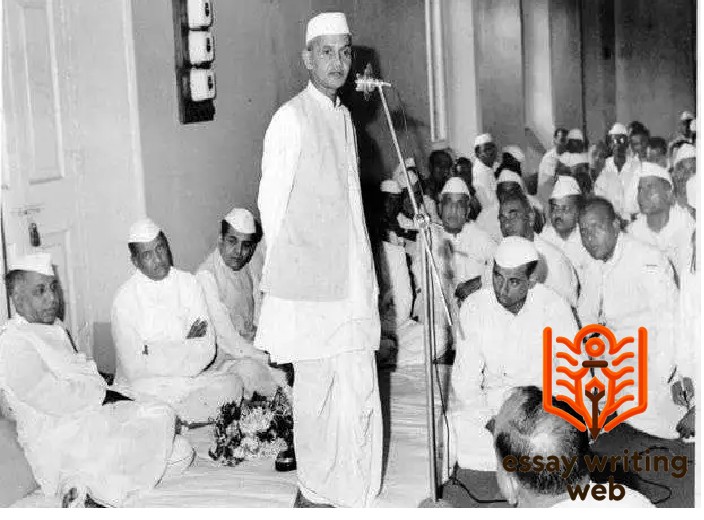 Essay Writing Web
Essay Writing Web
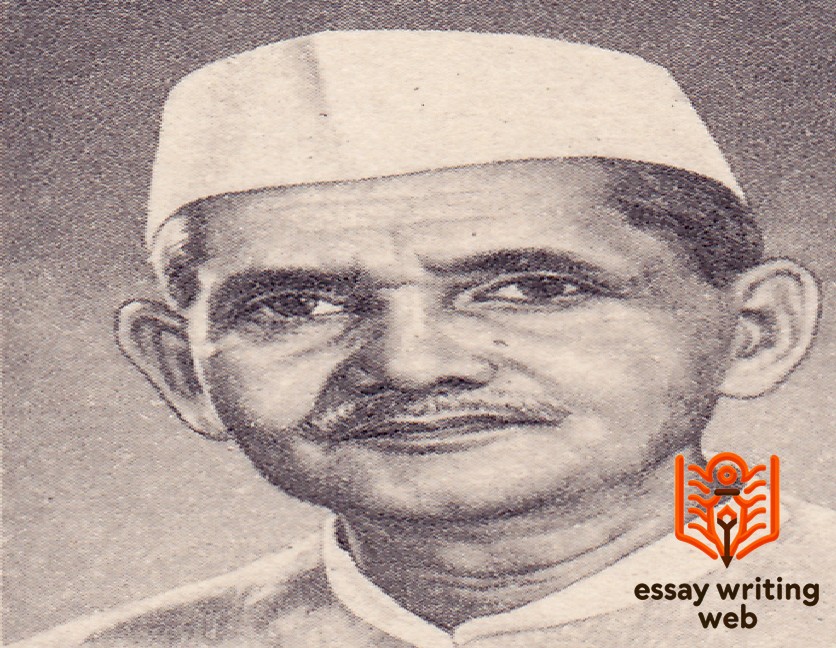
 02-09-2024
02-09-2024
 www.essaywritingweb.com
www.essaywritingweb.com
Lal Bahadur Shastri, the second Prime Minister of India, is remembered as a leader of great humility, integrity, and dedication. Born on October 2, 1904, in Mughalsarai, Uttar Pradesh, Shastri's early life was marked by simplicity and a commitment to education despite financial hardships. His upbringing instilled in him values of honesty and self-reliance, which later became the cornerstones of his political career.
Shastri's journey into politics began during the Indian independence movement, where he was deeply influenced by Mahatma Gandhi and his philosophy of non-violence. He participated actively in the freedom struggle, enduring imprisonment on several occasions. After independence, Shastri served in various capacities in the Indian government, including as Minister of Home Affairs and Minister of Railways, where he earned a reputation for being an efficient and empathetic administrator.
In 1964, following the death of Jawaharlal Nehru Lal Bahadur Shastri was chosen to lead the nation. Despite his short tenure as Prime Minister, lasting only nineteen months, Shastri made a lasting impact. He is best known for his leadership during the Indo-Pakistan War of 1965 and his famous slogan, "Jai Jawan Jai Kisan" which encapsulated his vision for a strong and self-reliant India, emphasizing the importance of both soldiers and farmers. Shastri's legacy is one of simplicity, dedication, and service to the nation. He remains a symbol of honesty and ethical leadership, inspiring generations of Indians to contribute selflessly to their country.
Lal Bahadur Shastri, one of India's most revered leaders, was born on October 2, 1904, in the small town of Mughalsarai, Uttar Pradesh. His birth coincided with Gandhi Jayanti, the birthday of Mahatma Gandhi, an event that later seemed symbolic of Shastri's alignment with Gandhian principles throughout his life. Shastri was born into a humble and modest Kayastha family, which lived a life of simplicity and integrity.Shastri's father, Sharada Prasad Srivastava, was a school teacher by profession but unfortunately passed away when Shastri was only a year old. His mother, Ramdulari Devi, took on the responsibility of raising him and his siblings with limited means, yet she ensured that her children were brought up with strong values. The family moved to his maternal grandparents’ home in Ramnagar, near Varanasi, after the death of his father, where Shastri spent much of his childhood.
Despite the hardships of losing his father at such a young age, Shastri's upbringing was marked by discipline, simplicity, and a deep respect for tradition and education. His family’s financial struggles taught him the importance of resilience and hard work, qualities that would define his later life. His mother played a crucial role in shaping his character, emphasizing the virtues of honesty, self-reliance, and devotion to duty.
Growing up in this environment, Shastri developed a keen sense of responsibility and a strong moral compass. These early influences would later manifest in his political career, where he became known for his incorruptibility and commitment to serving the nation. The values instilled in him during his formative years were instrumental in his evolution into a leader who embodied the very essence of humility and integrity.
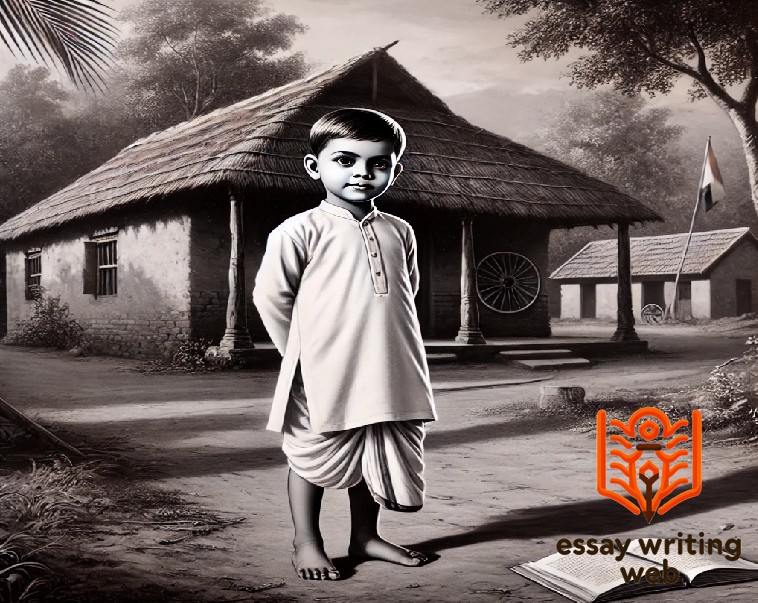
Lal Bahadur Shastri’s education and formative years played a crucial role in shaping his character and leadership style, which later defined his contributions to India as a statesman. Born into a modest family, Shastri’s early life was marked by financial hardships. Despite these challenges, he was determined to pursue education, a decision that laid the foundation for his future achievements.
Shastri began his education in the local school at Mughalsarai, where he showed a keen interest in learning. His academic journey, however, was not without difficulties. The untimely death of his father meant that the family faced significant financial constraints, but Shastri’s mother was steadfast in her belief in the importance of education. She ensured that her son continued his studies, often making personal sacrifices to support his schooling.
At the age of 11, Shastri moved to Varanasi, where he attended Harish Chandra High School. It was here that he encountered the teachings of Mahatma Gandhi, which left a profound impact on his young mind. The principles of non-violence and self-discipline resonated deeply with Shastri, and he began to align himself with the values of the Indian independence movement.
Despite his family's limited means, Shastri excelled in his studies. His determination and commitment to education were evident in his willingness to walk miles to school every day, as the family could not afford any other means of transportation. His teachers recognized his potential and often praised his diligence and sincerity.
After completing his high school education, Shastri enrolled at Kashi Vidyapith, a nationalist institution in Varanasi that was established as an alternative to British-controlled universities. Here, he was awarded the title "Shastri," meaning "scholar," which he adopted as part of his name. His education at Kashi Vidyapith was instrumental in reinforcing his nationalist sentiments and further deepening his commitment to the cause of Indian independence.
During his time at Kashi Vidyapith, Shastri was exposed to various aspects of Indian culture, history, and politics. The institution fostered a spirit of self-reliance and encouraged students to actively participate in the struggle for freedom. It was during this period that Shastri fully embraced Gandhian principles, adopting a simple lifestyle and dedicating himself to the service of the nation.
Shastri’s formative years were marked by a deep sense of responsibility and a commitment to the greater good. The values of simplicity, humility, and perseverance that he imbibed during this period became the hallmarks of his political career. His education not only provided him with knowledge but also instilled in him a sense of purpose and duty towards his country.
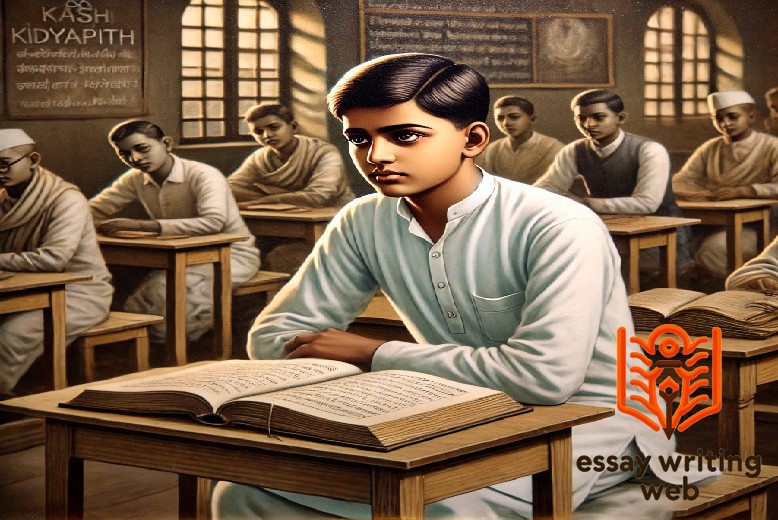
Lal Bahadur Shastri’s political career is a remarkable tale of dedication, resilience, and leadership that significantly shaped the course of modern India. His journey in Indian politics began in the early 1920s when he joined the Indian independence movement, inspired by the leadership of Mahatma Gandhi and other nationalists who were striving to free the country from British colonial rule.
Shastri’s initial foray into politics saw him actively participating in the Non-Cooperation Movement of 1921. As a young nationalist, he responded to Gandhi’s call to boycott British institutions by leaving his studies at Kashi Vidyapith and joining the movement. His involvement in various protests and activities against British rule led to his imprisonment several times, an experience that only strengthened his resolve to fight for the nation’s freedom.
After India gained independence in 1947, Shastri transitioned into the newly formed government, taking on various roles that highlighted his administrative acumen and dedication to public service. He initially served as the Minister of Police and Transport in Uttar Pradesh, where he introduced several reforms, including the appointment of women conductors in public transport, reflecting his progressive mindset and commitment to gender equality.
Shastri’s reputation as a competent and honest administrator quickly earned him a place in the central government. Under the leadership of Prime Minister Jawaharlal Nehru, Shastri was appointed to key positions such as the Minister of Railways and Transport and later as the Minister of Commerce and Industry. His tenure as the railway minister was particularly noteworthy, where he took full responsibility for a tragic railway accident and offered his resignation, demonstrating his deep sense of accountability—a rare trait in politics.
In 1964, following the death of Jawaharlal Nehru, Shastri was chosen as second Prime Minister of India. Although initially perceived as a consensus candidate with a modest and non-controversial persona, Shastri quickly established himself as a decisive and effective leader. His tenure as Prime Minister was marked by significant challenges, including the Indo-Pakistan War of 1965. Shastri’s leadership during the war was marked by his calm demeanor and strategic acumen. His famous slogan, "Jai Jawan Jai Kisan" became a rallying cry for national unity, reflecting his understanding of the critical roles that both the military and agriculture played in India’s development.
Shastri’s political career, though brief at the highest level, was marked by significant achievements. His emphasis on self-reliance, especially in the agricultural sector, laid the groundwork for India’s Green Revolution, which would eventually lead to food self-sufficiency in the country. He also worked towards promoting peace and resolving conflicts, as demonstrated by the Tashkent Agreement, which he signed with Pakistan in 1966 to bring an end to the hostilities between the two nations.
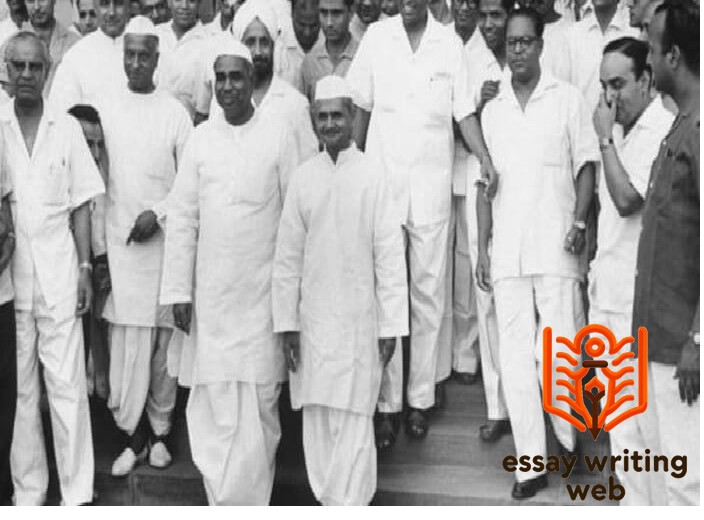
One of the most defining moments of Shastri’s tenure was the Indo-Pakistan War of 1965. The conflict was sparked by disputes over the Kashmir region, a contentious issue since the partition of India and Pakistan in 1947. Shastri’s response to the Pakistani aggression was firm and resolute. Despite India’s relatively limited military resources at the time, Shastri demonstrated remarkable strategic acumen and decisiveness. Under his leadership, India’s armed forces responded effectively, and the war ended in a stalemate, with both sides agreeing to a ceasefire.
During the war, Shastri coined the slogan "Jai Jawan Jai Kisan" which resonated deeply with the Indian populace. This slogan reflected Shastri’s understanding of the critical importance of both the military and agriculture in ensuring India’s security and self-sufficiency. The slogan not only boosted the morale of the soldiers fighting on the frontlines but also underscored the need for increased agricultural production, laying the groundwork for India’s Green Revolution.
Shastri’s role as Prime Minister was also marked by his efforts to address food shortages and promote self-reliance in agriculture. India was facing severe food shortages during his tenure, and Shastri encouraged the country to embrace austerity measures to conserve food. He appealed to the public to voluntarily skip a meal once a week, a move that demonstrated his ability to connect with ordinary citizens and lead by example. His advocacy for agricultural innovation and increased productivity played a crucial role in the eventual success of the Green Revolution, which transformed India’s agricultural landscape and made the country self-sufficient in food production.
In addition to his focus on agriculture and defense, Shastri was also committed to promoting social harmony and unity in India. He was a staunch advocate of secularism and worked tirelessly to maintain communal harmony in a country that was still grappling with the aftereffects of partition. His leadership style was inclusive, and he sought to bridge divides across different sections of society.
Shastri’s tenure as Prime Minister came to a sudden and tragic end on January 11, 1966, when he passed away in Tashkent, Uzbekistan, just hours after signing the Tashkent Agreement with Pakistan. The agreement was aimed at restoring peace between the two countries after the 1965 war, and Shastri’s role in negotiating the peace deal demonstrated his commitment to resolving conflicts through dialogue.
Despite his short time Shastri’s impact as Prime Minister was profound. He led the country with humility, courage, and a deep sense of duty, navigating through a challenging period in India’s history. His legacy as a leader who prioritized the welfare of the common people and the security of the nation continues to inspire generations. Lal Bahadur Shastri’s role as Prime Minister exemplifies the power of quiet, effective leadership and the enduring importance of integrity and dedication in public service.
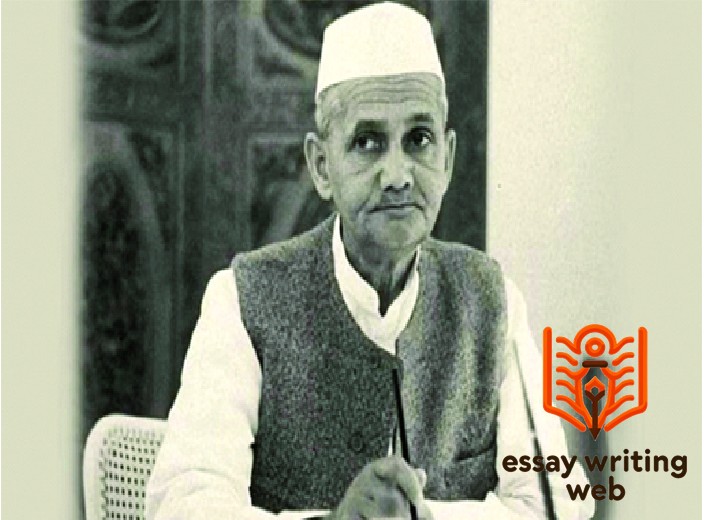
Lal Bahadur Shastri’s leadership and legacy are characterized by his profound simplicity, unwavering integrity, and steadfast commitment to the nation. Despite his modest background and unassuming demeanor, Shastri emerged as one of India’s most respected leaders, whose influence continues to be felt long after his tenure as Prime Minister.
Shastri’s leadership style was rooted in the values he imbibed during his early years, particularly those of humility, honesty, and dedication to public service. Unlike many of his contemporaries, Shastri did not seek the limelight; instead, he believed in leading by example, often shunning the trappings of power. His leadership was not defined by grandiose speeches or dramatic gestures but by his ability to inspire trust and confidence through his actions.
One of the most significant aspects of Shastri’s leadership was his ability to remain calm and composed in the face of adversity. This quality was particularly evident during the Indo-Pakistan War of 1965, where his measured and resolute approach helped India navigate a critical period in its history. Shastri’s leadership during the war earned him widespread respect, as he successfully rallied the nation behind the military while also maintaining a focus on agricultural productivity, encapsulated in his famous slogan, "Jai Jawan Jai Kisan". This slogan succinctly captured his vision of a strong, self-reliant India, underpinned by a robust defense and agricultural sector.
Shastri’s legacy is also marked by his emphasis on simplicity and ethical governance. He was a firm believer in the Gandhian principle of leading a simple life and was known for his austere lifestyle even while holding high office. This simplicity extended to his governance style, where he prioritized the needs of the common people and sought to address the challenges facing the country through pragmatic and sustainable solutions. His efforts to address food shortages and promote self-sufficiency in agriculture are a testament to his commitment to improving the lives of ordinary Indians.
Shastri’s leadership was also characterized by his inclusive and secular approach. He believed in fostering unity and harmony in a diverse nation and worked tirelessly to ensure that India remained a cohesive and stable society. His ability to connect with people from all walks of life, regardless of their background or beliefs, was a hallmark of his leadership and helped to build a sense of national unity during his tenure.
The sudden and untimely death of Lal Bahadur Shastri in 1966 cut short a leadership that was just beginning to realize its full potential. However, his legacy endures, not only in the policies he championed but also in the values he embodied. Shastri’s life and work continue to serve as an inspiration for leaders and citizens alike, reminding us of the importance of integrity, humility, and service to the nation.
In the years since his passing, Shastri has come to be revered as a symbol of ethical leadership and selfless dedication. His contributions to India’s development, particularly in the areas of agriculture and national security, have had a lasting impact, and his emphasis on simplicity and honesty in public life remains relevant today as it was during his time.
